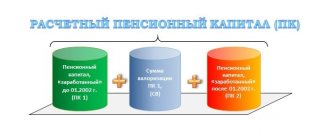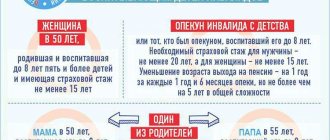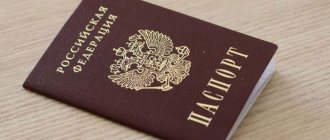Minors are often left without parents and care from other relatives, so caring for them becomes the responsibility of the state. The mechanism for supporting orphans primarily involves placing the child in a foster family or placing the child under the care of specific people. If this cannot be achieved, then the child in the orphanage must receive education and minimal social skills. In general, he should not have any problems during the socialization process. But no matter where the child is raised, he is entitled to certain payments. What exactly is the amount of pension for orphans?
Who belongs to orphans and children left without parental care?
There are such concepts as orphans and children left without parental care. It should be noted that these are absolutely two different terms and they differ from each other in several factors, namely:
- The first category includes children who have not reached 18 years of age and have also lost one or two parents - that is, their parents died or were declared missing, which is equivalent to death.
- The second category includes children who have also not reached the age of majority, and in this case their parents are alive, but either they have been deprived of parental rights for certain reasons, or are in prison or in custody.
Terms of provision and amount of assistance
When assigning a subsidy, the following factors (information about the child) are taken into account:
- Age (the orphan must be of incapacitated age);
- Citizenship;
- Territory of residence (only within the borders of the Russian Federation);
- Lack of other material sources to ensure proper existence.
As a general rule, social assistance is provided to a child if:
- He is under 18 years of age;
- He has lost one or both legal representatives;
In other cases, orphans have the right to receive a pension until they reach 23 years of age if:
- Study in full-time (full-time) department;
- The educational institution is licensed and has passed state accreditation.
The above payments have the following characteristic features:
- The time for provision of payments may be stipulated by the period of incapacity of the recipient or be of an indefinite nature;
- When assigning payments to orphans receiving knowledge in a full-time (full-time) department (provided that they are under 23 years old), the organizational and legal form of the educational institution does not matter;
- The benefit will be considered unlimited if, upon reaching adulthood or 23 years of age, the child receives the status of a disabled person, which will entail his subsequent incapacity for work;
- Orphans who have lost both parents receive a larger amount of assistance than children receiving assistance for the loss of a breadwinner.
When determining the amount of social assistance for orphans, the following is taken into account:
- Level of funding source;
- Region of residence (there are exceptions for residents of the Far North);
- Current cost of living tariffs.
Types of pensions for orphans
Today, there are several types of pensions that are paid specifically to orphans. These include the following types:
- Insurance type of payments - absolutely all family members of a deceased person who was the breadwinner for the family can apply for this type of pension. The amount of this pension depends on many factors influencing it - this could be work experience, pension contributions, the presence of pension points and much more. This type of payment is determined on an individual basis and is different for each case.
- Social type of payments - if the breadwinner was not officially employed, then his family still should not worry about financial support. In any case, the state has provided payments for such families and cases. However, the size is determined by the state and is fixed regardless of the case.
- State type of payments - this type of pension is provided exclusively to certain families whose breadwinners were, for example, astronauts, military personnel, etc. In this case, the amount of payments also depends on some factors - if a person died from a wound in service, then the amount is 10,000 rubles, but if he died while performing his duty, or from illness, then the amount will be only 5,000 rubles.
Algorithm for obtaining financial support for orphans
- The emergence of legal facts according to which the law considers a child an orphan;
- Collection of the required package of documents;
- Appearance before the authorized body:
- Pension Fund;
- MFC (transfers documents according to jurisdiction);
- Drawing up an application;
- Registration of the appeal by a competent employee of the authority;
- Conducting verification of submitted papers;
- Making a decision.
The payment will be assigned from the 1st day of the next month for which the application was submitted and taking into account the following features:
- The recipient of assistance can be either the child himself or his remaining legal representative, guardian;
- Funds are provided in non-cash form to a bank account or by postal transfer;
- After a child reaches 14 years of age, he has the right to independently choose the method of receiving security and dispose of it (there are some exceptions).
Conditions for receiving a social pension
To receive a pension for orphans, the first step is to collect the required documents and submit them to the specified governing body. One of the main documents is the death certificate of the family breadwinner.
Elena Smirnova
Pension lawyer, ready to answer your questions.
Ask me a question
This pension can only be applied for at the Pension Fund. There are no specific deadlines for filing an application.
Features of the purpose of collateral
Pension payments to orphans are allocated specific features when assigning:
- Deductions are made within the period of incapacity for work or in some situations have an unlimited period;
- Upon reaching 18 or 23 years of age (for full-time students), a person may be assigned a disability group. In this case, the citizen will no longer receive subsidies in case of loss of a breadwinner;
- An orphaned child under 23 years of age submits an application for benefits, regardless of the organizational form of the institution where he receives education;
- The volume of pensions for an orphan is increased in comparison with other applicants in this category. The remaining requirements are similar.
Amount of payments to orphans in 2020

According to the latest data, it became known that payments to orphans will be increased twice in 2020. However, the exact amounts of future pensions are still unknown. There is an assumption that they will increase by the rate of inflation in the country, but this has not yet been confirmed. In the meantime, according to the latest data, payments for full orphans amount to 4,558 rubles , and for others - 2,227 rubles .
Types of payments
Depending on whether the parents had insurance experience, orphans are assigned a social or insurance pension.
Social (for loss of a breadwinner)
A social pension is financial assistance that is assigned in accordance with Law No. 166-FZ to orphans who were dependent on their parents at the expense of the federal budget.
It is also appointed in connection with the loss of a breadwinner, regardless of the insurance coverage of the mother and father. Also, persons whose parents are unknown have the right to count on it.
Labor
An insurance pension is financial assistance that is assigned in accordance with Law No. 400-FZ to orphans who were dependent on their parents at the expense of the pension fund. It is important that the mother and father have insurance coverage at the time of death or abandonment of minors without care.
The payment is not awarded to persons who committed a crime that led to the death of their parents.
Until what age do they pay?
The child receives both types of financial support before reaching adulthood. If he is a full-time student, the payment is extended until he is 23 years old, but no later than the moment he completes his studies at the educational institution.
Restoring justice
The new Law comes into force on July 1, 2020 and concerns approximately 30 thousand pensioners . These are both natural grandparents and elderly people raising children without parental care under a foster family agreement.
The main condition for receiving increased pensions is the paid performance of the duties of a guardian in accordance with the guardianship or trusteeship agreement.
p, blockquote 4,0,1,0,0 —>
p, blockquote 5,0,0,0,0 —>
Today, retired guardians, who make up about a third of all guardians and trustees in Russia, are caught between two fires. On the one hand, they receive payments from regional budgets for performing their noble work.
p, blockquote 6,0,0,0,0 —>
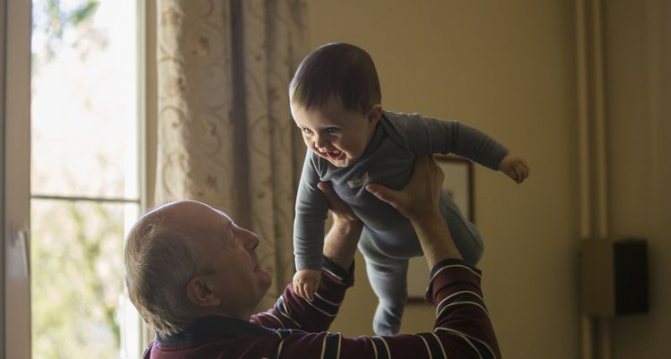
p, blockquote 7,0,0,0,0 —>
On the other hand, the state took this money from them, equating these elderly people with insured persons, and the modest remuneration they received, which went exclusively to raising a child, with wages.
p, blockquote 8,0,0,0,0 —>
From this income, the expenditure of which must be reported to the state, insurance contributions for compulsory pension insurance were deducted, and therefore elderly guardians were treated as insured persons.
p, blockquote 9,1,0,0,0 —>
Will the change affect employed pensioners?
Law No. 86-FZ, which comes into force on July 1, 2020, provides that persons covered by compulsory pension insurance will no longer include citizens receiving an insurance pension and payments:
- under a guardianship or trusteeship agreement;
- under a foster family agreement.
This means that insurance premiums for compulsory pension insurance will no longer be paid for them, so pension benefits will begin to be indexed, like all non-working pensioners.
If a citizen is officially employed, his employer makes contributions to the Pension Fund for the employee’s pension insurance. Therefore, employed citizens are not entitled to indexation, even if they are guardians or trustees.
Expert opinion
Mikhailov Ivan Leonidovich
Legal consultant with 10 years of experience. Specialization: criminal law. Member of the Bar Association.
Actually, for officially working pensioners, no changes will occur from July 1, 2020. Their pension will be indexed only after completion of their working career (that is, after dismissal).
How to apply?
Young children who are left without parental care, due to their age, cannot independently apply to the Pension Fund authorities for the assignment of payments. This responsibility falls on their legal representatives. Thus, the guardian must:
- collect the necessary documents;
- draw up a statement of the established form;
- select the type of benefit delivery.
To assign a survivor's pension to the heir of the deceased, it is necessary to collect a package of the following documents:
- passport of the legal representative;
- child's birth certificate;
- guardian's certificate;
- a document confirming the death of the parents: a death certificate or a court decision declaring a person missing;
- additional certificates indicating the existence of a family relationship between the deceased and the child. It is also worth noting that not only the natural children of the deceased have the right to receive payments, but also those adopted in the manner prescribed by the laws of the Russian Federation. Therefore, documents confirming the fact that the child has been accepted into foster care can serve as evidence;
- a certificate of the average monthly salary of the breadwinner for a certain period of time and other information;
- work book or other extracts from official documents confirming the periods of a person’s work activity. These could be employment contracts, hiring orders, etc.
Students of educational institutions must provide local Pension Fund authorities with an order to enroll them in full-time study. It is worth noting that divisions of pension authorities may require other documents confirming additional circumstances. Children after reaching 14 years of age have the right to independently receive cash payments.
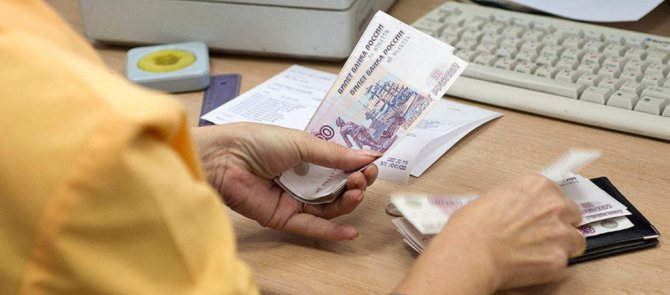
Benefits for orphans
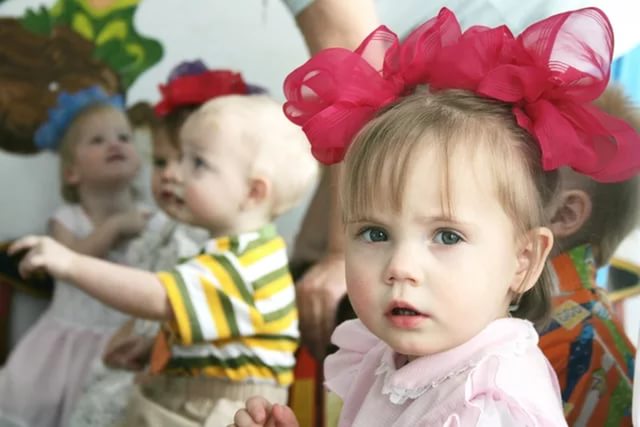
It is worth recalling that in addition to the pension itself, this category, the laws provide for a number of such benefits:
- increased scholarships;
- free school meals;
- medical care;
- annual financial assistance to students in the amount of 3 scholarships;
- preferential right to admission to state universities;
- maintaining a full scholarship for the entire period of academic leave taken due to illness.
These benefits are provided at the federal level. However, there are also regional ones. They vary depending on where the orphan lives, and to find out which ones you can count on, you need to check with the local social security authority.
How will pensions for guardians and trustees be increased in the future?
- The increase will be made from January 1, and not in February.
- The percentage by which the payment will be increased is determined in advance by Law No. 350-FZ of October 3, 2018 for the entire period up to 2024 inclusive. According to the Government's calculations, this percentage will be approximately 2 times higher than the forecast inflation.
Annual increases until 2024 inclusive will be carried out according to the table:
| Year | By what percentage will they increase | Fixed payment, in rubles | One pension coefficient, in rubles |
| 2021 | 6,3 | 6044,48 | 98,86 |
| 2022 | 5,9 | 6401,10 | 104,69 |
| 2023 | 5,6 | 6759,56 | 110,55 |
| 2024 | 5,5 | 7131,34 | 116,63 |
From 2025, the traditional indexation scheme will be restored, and pensions will increase from February 1 in accordance with price increases (by approximately 4% per year).
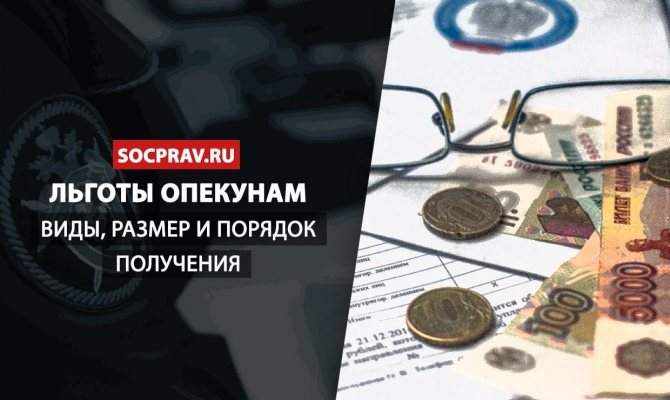
People who are unable to take care of themselves are a special category of citizens who need constant care. The protection and support of such persons is provided by guardians. As “compensation” for their work, the state established benefits for guardians - cash payments and social privileges.
What benefits are available to guardians?
State support for guardians depends on the category (status) of the ward. The privileges of guardians are supervised by social protection authorities.
The general list of benefits covers the following areas:
- taxation;
- employment;
- transport services;
- medical service;
- education;
- social sector (subsidies).
The variety of benefits is regulated by the following regulations:
- Family Code of the Russian Federation.
- Civil Code of the Russian Federation.
- Government resolutions.
- Presidential Decrees.
- Federal Law “On Guardianship and Trusteeship”.
- Orders of the Ministry of Health and Social Development.
Federal legislation granted regions the right to establish individual benefits.
Tax benefits
The right to receive benefits is granted to guardians of minors.
These include tax deductions:
- standard;
- social.
The registration rules are provided for by the Tax Code of Russia.
The standard deduction means that personal income tax (13%) is not charged on a certain portion of the guardian taxpayer's salary.
The monthly deduction corresponds to the following indicators:
| Value rub.) | Condition (child taken into custody) |
| 1400 | 1,2 |
| 3000 | 3 and subsequent |
| 6000 | disabled person |
These sizes are intended for one guardian.
Example of receiving standard benefits:
Social tax deductions for guardianship correspond to the following indicators:
| Value (rub./year) | Condition |
| ˂ 50 thousand per child | Stationary training |
| ˂ 120 thousand | Treatment (purchase of medications) |
Registration of social benefits consists of submitting a declaration for the expenditure year.
Labor benefits
The employer must provide the guardian with the following privileges:
- vacation:
- 2 or more months;
- due to illness (care) for a child;
- maternity leave with retention of place and salary.
- reduction of working hours;
- opportunity to opt out:
- overtime hours;
- evening and night shifts;
- business trips if the child is under 5 years old.
Social benefits
Among the state guarantees that apply to guardians:
- Discount when paying for housing and communal services (up to 50%).
- Spa treatment.
- Reducing the land tax rate.
- Priority in obtaining land for housing construction.
- Reducing the amount of transport tax.
- No property tax.
- Preferential travel on public transport.
The scope of benefits in the constituent entities of the Federation differs.
Medical benefits
This category of privileges mainly applies to guardians of children under 18 years of age and disabled people:
| Benefit | Category | Age |
| Free allocation of some medications according to a doctor’s prescription | Children | up to 3 years |
| Mixtures financed from the state budget | up to 2 years | |
| Rehabilitation programs | Disabled people |
Benefits for training
In the general education sector, guardians are entitled to a number of benefits:
- free two meals a day;
- free textbooks;
- preparatory classes without paying a fee (school, technical college, university).
Children under guardianship have the priority right to enroll in kindergarten. To do this, you must submit documents establishing guardianship.
What is guardianship and what types of guardianship are there?
Guardianship is a social form of protecting the interests and rights of citizens, extending to those who have lost their ability to work and the ability to do anything independently. This category includes physically unhealthy and incapacitated persons.
The head of the local government authority, which is responsible for monitoring the performance of duties by guardians, establishes the fact of guardianship.
One trustee may be assigned to one incapacitated citizen, who, by law, is entitled to a pension for guardians of disabled people.
Before establishing guardianship over a person with mental disabilities, a court order must be obtained.
Guardianship is divided into types according to certain facts. Age category:
- guardianship of disabled children;
- guardianship of disabled people who have reached the age of majority.
- guardianship of persons with physical disabilities;
- guardianship of incapacitated people.
- free guardianship;
- paid guardianship – federal and regional budgets allocate funds for guardianship.
Who has the right to be a trustee or guardian
To formalize guardianship over a citizen who has been assigned the first disability group, a certain procedure must be followed.
The future guardian is subject to requirements, failure to comply with which may result in him being rejected by the Pension Fund.
Only after a trustee or guardian has received the appropriate status can he expect to be awarded a pension for guardians of disabled people.
The applicant for guardianship must himself be a capable person, in relation to whom no court decision has been made recognizing him as deprived of legal capacity.
A citizen who has reached the age of eighteen is considered fully capable and one who can bear responsibility for his activities. The trustee must own living space that meets all sanitary standards.
It is important for a caregiver to have a regular job or source of income. The applicant is assessed on the basis of moral qualities - he must be known as a positive person in this regard, who does not enter into conflicts with relatives.
In the past, the guardian should not have been convicted for crimes that he could commit while intoxicated, or for committing a crime in relation to the life and health of another person.
In the case when guardianship is issued over a child, the applicant must not have been deprived of parental rights in the past. Health and personal qualities are important when considering a case for granting guardianship status.
The applicant must provide a reference from work, a certificate from a doctor, and reviews from relatives or friends may be needed.
A guardian can be a citizen who expresses such a desire, or one appointed by the board of trustees.
Documentation
A positive result of the status registration procedure means that this person will be assigned a pension for the guardians of disabled people.
In order for a person to prove his ability and suitability to be a trustee, it is necessary to collect documents.
The disabled person provides the following documents:
- documentary proof of identity;
- document on assignment of disabled person status;
- a certificate from the court stating that the person is declared incompetent;
- certificate of pension amount;
- documenting an extract from the house register;
- certificate of rights to property and movable property.
The candidate for guardianship provides the following documents:
- autobiography;
- passport;
- a certificate stating that he has no criminal record;
- information from work with characteristics;
- written confirmation of the consent of relatives;
- a document confirming the compliance of living conditions;
- a certificate from a medical institution confirming the absence of serious health problems.
All documentation provided must be in two copies - an original and a copy. If the decision is satisfactory, the guardian will receive a certificate. In case of refusal, he is provided with a written explanation of the reasons for this decision.
Registration procedure
The process of registering guardianship begins with the recognition of the ward's incapacity.
In the case when a mentally healthy citizen needs to obtain recognition of incapacity, an application is submitted to the court.
His relatives can contact this authority with documents confirming family ties; a medical institution that can confirm the fact of mental disorders in the person in question; guardianship and guardianship authorities.
An examination by independent specialists is ordered by the court. Doctors determine the presence or absence of a mental disorder. Based on the conclusion from the medical institution, a court decision is made.
The process then moves to the board of trustees. A medical examination determines disability in accordance with the physical limitations of the citizen who needs guardianship.
In the case of an already established disability group, the applicant applies to the guardianship council with all the collected documents. If there are no volunteers willing to become a trustee of a disabled person, the state body appoints such a person.
Caregiver benefits
The state tries to help in every possible way, providing certain benefits to those who care for a disabled person.
Depending on the region of residence and the situation of the ward himself, benefits may vary.
The pension for guardians of disabled people is the main cash payment. Early pensions for guardians of disabled children are assigned to persons raising such a child until he is eight years old.
Trustees caring for wards of the first group are entitled to the following payments:
- 3357 rubles of benefits paid every month;
- pension in case of acquired disability - 9538 rubles, pension for caring for a disabled child - 11445 rubles;
- 60% of the minimum wage to a father or mother who was forced to leave work to care for a disabled person.
These payments are provided to persons who are relatives of the ward, or to those hired by the state.
Citizens faced with this problem are interested in whether a guardian can receive the pension of a disabled person under their care. He has this right, but he should not spend these funds to satisfy his needs.
Every year, the person receiving and managing the ward’s pension must file a report on waste. If this is not done, the status may be lost.
A number of social benefits have been developed for those who provide guardianship. The law on pension provision does not provide for early pensions for guardians of a disabled person of the 1st group.
Bill proposals
The document provides for an amendment to paragraph 2 of paragraph 1 of Article 7 of Federal Law No. 167. In accordance with the innovations of the project, pension recipients in the Russian Federation who are guardians or trustees performing their duties for a fee under a guardianship or trusteeship agreement will be excluded from the number of insured persons who are subject to compulsory pension insurance.
Thus, after the adoption of the law, there will be a basis for indexing pensions and fixed additions to it.
Example of calculating the increase
Grigory Ivanovich is the guardian of his grandson. In March 2016, Grigory Ivanovich quit his job due to retirement due to old age. He was assigned a pension taking into account his IPC of 110 points and the standards in force at that time:
- one point—RUB 74.27;
- fixed part - 4558.93 rub.
The amount of the payment assigned to him was 74.27 × 110 + 4558.93 = 12728.63 rubles. Since that time, it has not increased, since the Pension Fund of the Russian Federation considered him a working pensioner in connection with his receipt of payments under the agreement on guardianship of his grandson.
However, from July 1, 2020, due to the entry into force of Law No. 86-FZ, his pension will be recalculated as for a non-working pensioner. The payment amount will be 93.00 × 110 + 5686.25 = 15916.25 rubles. Accordingly, the increase from July 1, 2020 will be 3187.62 rubles.
Is the guardian entitled to early retirement?
N 173-FZ “On labor pensions in the Russian Federation” - Chapter VI.
The procedure for preserving and converting (transforming) previously acquired rights Article 28. Preservation of the right to early assignment of a labor pension to certain categories of citizens 1. An old-age labor pension is assigned before reaching the age established by Article 7 of this Federal Law to the following citizens: 1) women who have given birth to five or more children and who raised them until they reached the age of 8 years, as well as mothers of disabled people from childhood who raised them until they reached the age of 8 years, upon reaching the age of 50 years, if they have at least 15 years of insurance experience; .And what is the connection between this and a pension at 50? Does he have the right to retire early? Women upon reaching the age of 50, if they have an insurance record of at least 20 and 15 years, respectively; guardians of disabled people since childhood or persons who were guardians of disabled people with childhood, who raised them up to. You can become a guardian over an incapacitated patient.
Summary
- If I am a guardian of a group 2 disabled person since childhood, should I go on business trips?
- Are payments due to the guardian of a disabled person since childhood? She is retired.
- Disabled since childhood
- Disabled since childhood group
- Group 3 disabled since childhood
- Pension of a disabled person since childhood
- Pensions for disabled people since childhood
Questions
1. If I am the guardian of a group 2 disabled person since childhood, should I go on business trips?
This is interesting: Pension for a disabled child in 2020 amount
1.1. Hello. No, they do not have the right to send you on business trips
2. Are payments due to the guardian of a disabled person since childhood? She is retired.
2.1. Are payments due to the guardian of a disabled person since childhood? She is retired. but only an unemployed citizen can arrange care for a disabled person.
3. My husband and I are pensioners. I am still working, but my husband retired at the age of 55, since our son has been disabled since childhood, group 1, he is 30 years old and incapacitated. Tell me, what benefits are we entitled to?! We don't need a sanatorium. We receive compensation only for the light - 80 rubles. There is no compensation for garbage and water, since we have a well, and we pay for garbage like everyone else. In January, my husband turns 60 years old, he was born in 1959. Is he or I (according to documents, I am the guardian) entitled to some kind of additional payment?! Thank you.
3.1. Hello, Anna Vasilievna. To answer your question, you need to know which municipality you live in, since benefits and compensation are established at the regional level.
4. I am a pensioner, I am the guardian and mother of an incapacitated daughter, a disabled person of the 1st group since childhood. The daughter is also already an adult. What compensation and allowances are my daughter and I entitled to besides pension payments? Thank you.
4.1. Guardians of disabled people of group I have the right to monthly financial assistance. On the territory of the Russian Federation you can count on the following types of state support:
the right to work part-time week or day; the opportunity to receive 4 additional paid days off; the right not to work on weekends and holidays, as well as at night; the right not to work overtime and not to travel on business trips; additional unpaid leave lasting 14 days (if there is such a condition in the collective agreement). Persons who raised children with disabilities can count on early retirement. For every 18 months of guardianship, the date of assignment of the pension approaches 1 year. The age for applying for a pension can be reduced by a maximum of 5 years. In addition, families raising children with disabilities can count on a 50% discount on utility bills and rent. Such families have the right to priority provision of land plots. How much a guardian of a group 1 disabled person receives since childhood also depends on tax deductions.
5. A person has been disabled since childhood. The guardian is the mother. If the mother dies, who can be the guardian and does he have to be?
5.1. The Law “On Social Protection of Disabled Persons in the Russian Federation” dated November 24, 1995 No. 181-FZ defines a disabled person as a person who has a permanent impairment of health due to a disease, injury or defect. Disability can be associated with both a severe physical condition and a mental disorder. This point is important when deciding how to arrange guardianship of a disabled person.
If a disabled person is competent (that is, does not have mental illness), he may be provided with care in the form of foster care. When establishing patronage, the guardian (assistant) of a disabled person provides assistance to his ward in solving everyday issues, and also represents his interests in various transactions. If the cause of disability is a mental disorder, then it is not patronage that is established, but guardianship in full. To do this, it is necessary, first of all, to recognize a disabled person as incompetent in court (for more details, see “How to obtain guardianship over a mentally ill person?”). After the court decision on deprivation of legal capacity enters into force, the authorized body appoints a guardian for the disabled person.
6. I am a mother-guardian, I have a daughter with a childhood disability of 2nd group disability, she has the disease schizophrenia, she is registered with a psychiatrist Question: can I get her a card in Sbebank so that she can go to grocery stores since I have no health - my legs are bad, after all, with a card more convenient What does this threaten me with in the law?
6.1. Yes, you have that right.
7. I was born in 1966. I am the guardian of my brother, who was disabled since childhood. I have been a guardian since 1993, do I have the right to retire when I reach 50 years of age?
7.1. Yes, you have that right.
8. My daughter has been disabled since childhood, group 2 for mental illness, 25 years old (F 71.02) - indefinitely. The court declared her incompetent. I have been appointed guardian by the Department of Guardianship and Trusteeship. I can't work because... she requires constant care. Am I entitled to benefits to care for her? Or some other payments? If so, which authorities should I contact and what documents are needed?
8.1. Good afternoon, Oksana Leonidovna!
According to the law, a person caring for a disabled person of group 2 is not entitled to receive benefits. But there are cases when disability group is equal to 1 for a disease, for example, diseases of the visual organs that do not allow a citizen to care for himself independently, but the first disability group has not yet been assigned (there is no complete loss of vision), in such cases payments may be appointed. The amount of payments is determined by each region independently.
If the disease for which a disability is assigned is not included in the list of diseases requiring constant care of a citizen, payments will not be assigned.
In this case, you can only count on labor benefits: a ban on working overtime, on holidays and weekends, as well as additional, unpaid leave upon request.
For payments, you need to contact the social security authorities at your place of residence.
On this issue, see Decree of the President of the Russian Federation dated 02/26/2013 N 175 (as amended on 03/07/2019) On monthly payments to persons caring for disabled children and disabled children of group I.”
9. Who receives payments for caring for a disabled person of the first group since childhood, to the account of the nominal disabled person himself or the guardian?
9.1. On March 7 of this year, Decree of the President of the Russian Federation No. 95 “On introducing amendments to Decree of the President of the Russian Federation of February 26, 2013 No. 175 “On monthly payments to persons caring for disabled children and disabled children of group I” was signed. This Decree comes into force on July 1, 2020. A monthly care payment is assigned to one non-working able-bodied parent (adoptive parent) or guardian (trustee) for each disabled child for the entire period of care. This period is also included in the insurance period; for each year of care, 1.8 pension points are awarded. This allows a person who is unemployed but caring for a disabled child to formulate his pension rights in order to receive an insurance pension in the future.
Legal representatives of disabled children can receive the child’s pension independently, without permission from the guardianship and trusteeship authority, but only within the limits of the subsistence level (Article 37 of the Civil Code of the Russian Federation)

